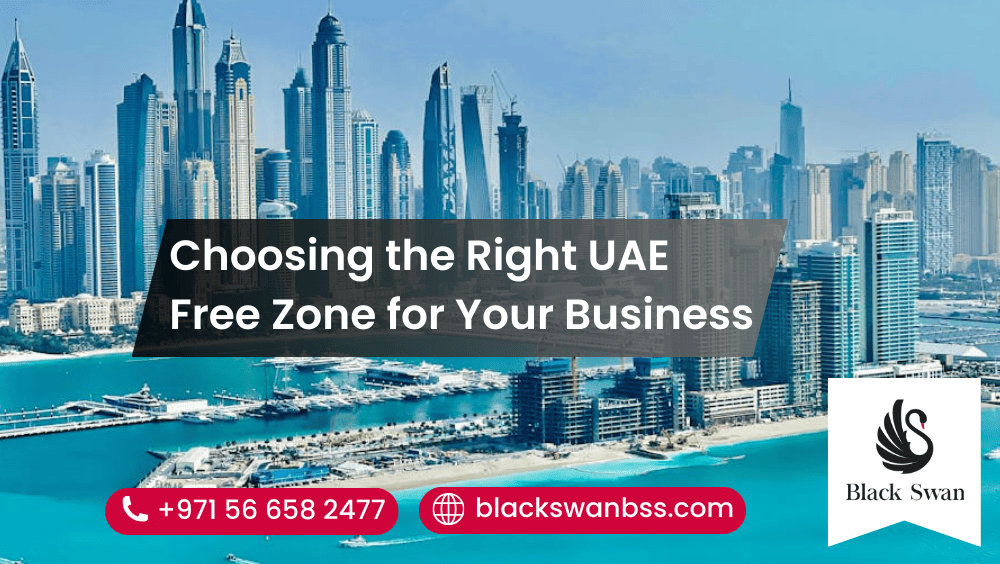Office Time
Mon-Sat: 8am to 8pm


Are you thinking about starting a business in the UAE but confused which free zone to go with? If yes, you are not alone. More than 40 free zones are available in the United Arab Emirates (UAE), each with its own set of advantages. They provide entrepreneurs and investors a vibrant support ecosystem. But, it’s tricky to pick the right one if you aren’t familiar with the process. The following article helps you to know how to choose the right UAE free zone for you.
Table of Contents
A free zone means that foreign investors can establish a business with full ownership. These zones were created to bring international business by offering tax benefits, easy registration and simplified legal processes. In addition, firms in free zones have customs exemptions and can repatriate profits without restriction.
Some of the most well-known reasons why investors love free zones in the UAE are as follows:
While these benefits are common across all free zones, they are not identical. So the best one for you will depend on what type of business you have, your market segments, and your specific need.
To make the best decision, you need to keep the following things in mind:
Step one is to define your business activity list of industry specific free zones. Dubai Media City, for example, suits media-related businesses, while Dubai Internet City caters to IT and tech companies. However, if your business does not belong to a specific category then a general-purpose free zone such as Sharjah or RAK may suit better.
Your business location is key. If your clients or suppliers are located in the region of Dubai, opting for a Dubai-based free zone like DMCC or DAFZA can save you travel time and cost. But if cost is a concern, there are cheaper options in free zones in northern emirates such as Ajman and Ras Al Khaimah.
Free zones offer different types of office solutions, from flexi-desks to complete office buildings. If you simply need an address, get a virtual office. However, if you require meeting rooms or need to hire personnel, search for areas that offer plug-and-play office spaces.
There are various expenses to be incurred while registering a company–license fees, office rent, visa fees, etc. While free zones in Dubai can be costly, they offer a higher value for your brand. In comparison, the other emirates have cheaper packages that provide the same benefits.
Each free zone has its own rules and regulations in respect of the number of visas a company can apply for. If you hire multiple employees, opt for a zone with a higher visa quota.
Each free zone permits a different range of company structures. Some allow branch offices; others only new companies. Verify that the zone you are considering is compatible with the legal structure you want.
Some of the free zones you might have heard of and what they focus on:
Each of these has pros and cons, so weigh them according to your priorities.
Related Articles
» Birth Certificate Translation Services in Dubai : Expert Translators
» Broadcasting and Communications Company Registration in Oman
» Building Maintenance Company Registration in Oman
» Building Materials Trading Company Registration in Oman
Selecting the appropriate free zone for your business is a vital aspect of your business presence in the UAE. Because every free zone caters to particular industries and have unique packages, make sure to calculate what suits your goals the best. Before you make a decision, you have to consider the type of business, location, office needs, visa options and setup costs.
Free zone allows 100% foreign ownership with tax benefits, whereas, in the mainland, trading is open across the UAE but might require a national sponsor.
The selected free zone should also be related to your industry, be it media, tech, trading, etc.
Yes, visa numbers are based on your size of office and license type.
Yes, but it’s got added costs and paperwork.
The process for company formation typically lasts between 3 – 10 working days.